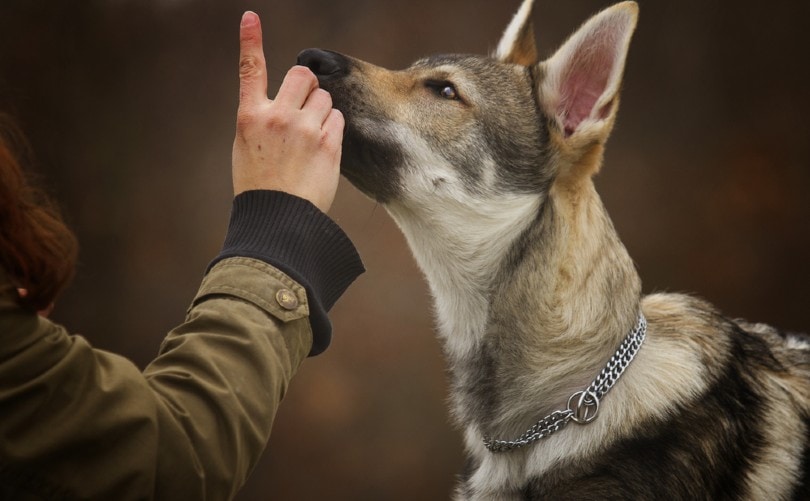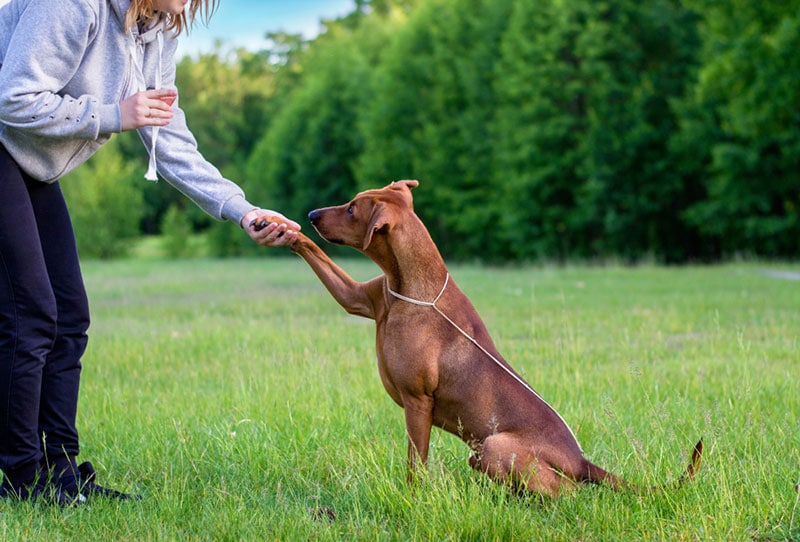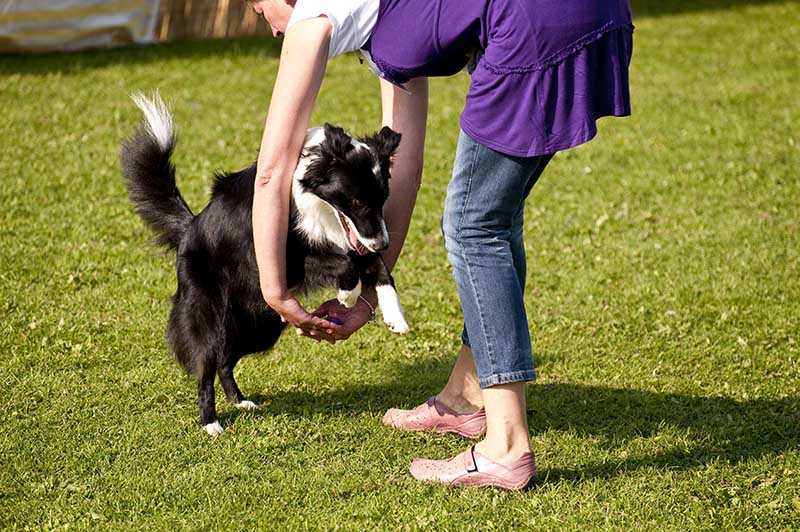In this article
View 2 More +How much do you really understand about what goes on in your dog’s mind? Are they just imagining their dinner, the neighbor’s cat, or dreaming of a walk?
Every dog owner has boasted about how intelligent their pet is. In reality, research on canine intelligence has shown that our four-legged friends can learn in more complex ways than traditionally believed, and scientists have even indicated that dogs can be as intelligent as a 2-year-old child.1 But how intelligent are dogs, really? And how can you tell if your pet is smart?

How Smart Is a Dog?
Dogs can read our body language, express an emotional connection to their owners, and even show jealousy. The most intelligent dogs seem to be able to pick up hundreds of phrases. These skills have probably evolved over thousands of years as we chose the canines best suited to coexist with humans.
But every dog is unique, just like us. Scientists are working hard to gather data about how they perceive the world, but it’s crucial to know that their findings aren’t intended to provide you with a blueprint for your specific pet. The studies can be intriguing and valuable guides, but the more interesting thing is learning about your companion’s intelligence by yourself.
As you learn more about their mind, note that they have various types and degrees of intelligence. It’s possible for dogs to possess many cognitive abilities, like learning a new command, solving problems creatively, or even having other skills entirely.


Top 4 Signs of a Smart Dog
Dogs get information about their surroundings via their senses, particularly smell, and they can use this information to make judgments. Here are several indicators that your dog is intelligent:
1. Pick up Commands and Tricks Quickly
It’s essential to teach a dog basic cues and tricks to keep their brains active. Some dogs are easier to train than others but in general, intelligent dogs are receptive to the mental stimulation that comes through training. Dogs learn by positive reinforcement and using classical conditioning. For instance, while teaching a dog to sit on cue, give them a pleasant treat, praise, and attention. A pup with a high level of intelligence will rapidly understand, “If I sit when my owner tells me, I receive a reward!”
Dogs can pick up on cues and use them to their benefit. For instance, even though someone else has already fed your dog, they can attempt to persuade you that they haven’t received it. Beware of those adorable puppy dog eyes!
Smart dogs will also be better at problem-solving. For example, puzzle-treat toys are popular with many dogs. They come in a range of difficulty levels and smarter dogs will be able to problem-solve more quickly and earn those treats!

2. Learn Language Skills
Dogs have shown that they can memorize the names of objects. A typical dog can learn a handful of words, while some brainiacs can remember as many as 200.
In one experiment, a remarkable Border Collie named Rico could remember the names of more than 200 items for weeks at a time. In addition, he demonstrated that he could learn new objects by exclusion, i.e., infer a new object’s name simply by recognizing it as one he had no name for.
3. Comprehend Social Cues and Human Gestures
Puppies pick up many skills by imitating the behaviors of experienced dogs. What’s more astonishing is that they can also learn from watching people.
They are good at comprehending human communications even without training since they have spent thousands of years interacting with us. Dogs can even track their owner’s gaze and respond to gesturing and pointing. When these animals are lost or unsure about what to do, they frequently turn to their owners to see where they are gazing or pointing.

4. They Feel Emotions
Humans and dogs both produce hormones like oxytocin and epinephrine and have comparable brain structures. Therefore, we experience some of the same feelings. However, their spectrum of emotions will probably be similar to that of a 2-year-old toddler, meaning they can at least experience core emotions of happiness, anger, disgust, fear, and sadness.
According to some research, dogs may also be capable of experiencing more complex emotions like empathy and jealousy. In one experiment, dogs responded to people who were pretending to cry, in a way consistent with empathy. The study suggested that dogs were responding to emotion and not their own needs.

Which Dog Has the Highest IQ?
The Border Collie is the smartest canine known to man, according to The Intelligence of Dogs, which assesses 131 dog breeds based on their relative intelligence. A Border Collie from South Carolina named Chaser was linguistically talented and knew more than a thousand words.
However, it goes beyond simply being “book smart.” The breed, a descendant of European herding canines who lived around the mountainous borders of England, Scotland, and Wales, was trained to be sharp and athletic enough to withstand the challenging terrain. In addition to being “smart, energetic, and affectionate,” the Border Collie is also described by the AKC as a “remarkably bright workaholic.”


Conclusion
Each dog has a unique and distinct intelligence and a dog’s breed will determine some of their traits. Even if your four-legged friend does not have a great memory, they still might be a great communicator. Overall canine IQ does not guarantee a better relationship or outcome. More intelligent dogs are more likely to exhibit behavioral problems due to their higher stimulation requirements. A lot of training is necessary if you have a pet with exceptional intelligence.
Featured Image Credit: bluecrayola, Shutterstoc






















